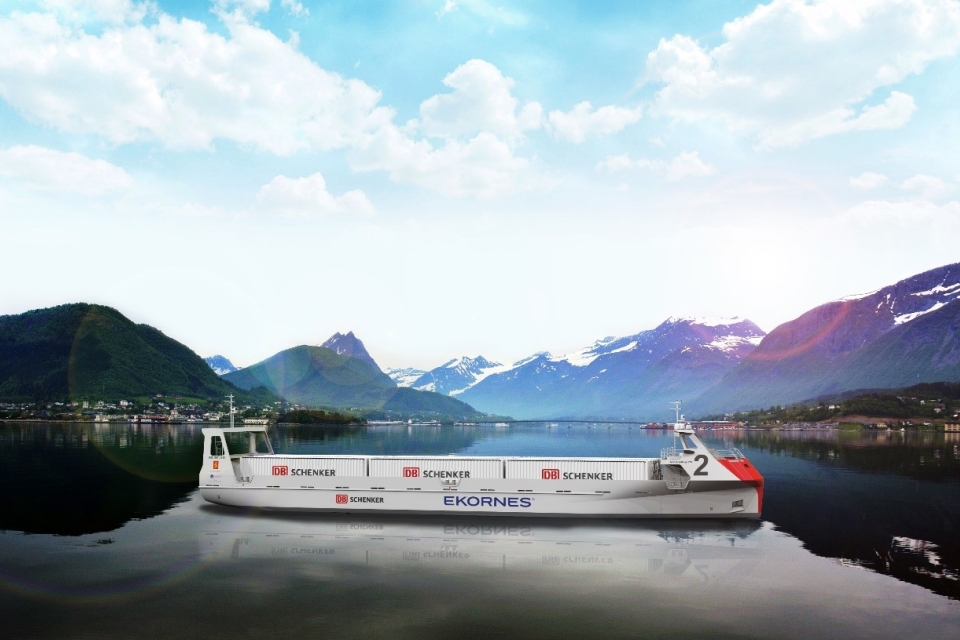DB Schenker has revealed plans to run a zero-emission coastal container feeder between Ikornnes quay and the Port of Ålesund in Norway. The autonomous and fully electric vessel will use the Naval Dynamics’ NDS AutoBarge 250 concept developed in partnership with Kongsberg and Massterly.
Having just signed the prestudy agreement, DB Schenker, and its cooperation partners – the furniture giant Ekornes and vessel designers Naval Dynamics, in addition to Kongsberg and Massterly – have taken the first steps in an ambitious collective aim to replace the traditional feeder vessels utilised along this stretch of the Norwegian coastline.
‘We are delighted to further reinforce an already strong relationship with our customer Ekornes,’ says Knut Eriksmoen, CEO Norway, DB Schenker. ‘This unique project will mark another important step towards greener supply chains and pays into our overall sustainability agenda in ocean freight. We are ambitiously taking the lead here with our cooperation partners.’
Also read: Alewijnse and Seafar join forces to further autonomous shipping
Remote Operation Centre
The vessel will operate between Ekornes’ own port, at Ikornnes, to the port of Ålesund which serves the main ocean freight ports in Europe, completing the 43 km (23NM) voyage within three hours, at a speed of 7.7 knots. The vessel is 50 meters long and can carry 300 deadweight tonnes cargo and is designed from keel up to be fit for purpose with respect to autonomous and zero-emission operation. The vessel aims to run un-crewed but supervised from Massterly’s Remote Operation Center (ROC), which is staffed with certified navigators and naval engineers.
The planned two-way data communication solution between the vessel and the ROC is destined to be another game-changer in the sea freight sector.
Geir Håøy, CEO, Kongsberg: ‘Kongsberg is currently involved in several fully electric and autonomous vessel operations, including Yara Birkeland and ASKO. We look forward to bringing our know-how and experience to this new partnership with DB Schenker and Ekornes.’
Also read: Autonomous container ship Yara Birkeland sets sail
The benefits are said to include zero emissions, faster and more efficient transport, and reduced traffic on roads. Leading the way to climate neutrality, the parties’ hope to take the next crucial steps forward by receiving approval from the Norwegian Maritime Authority and possibly secure governmental incentives for the sustainability and technology aspects.
Also read: Norwegian grocery distributor plans to use autonomous RoRo vessels








